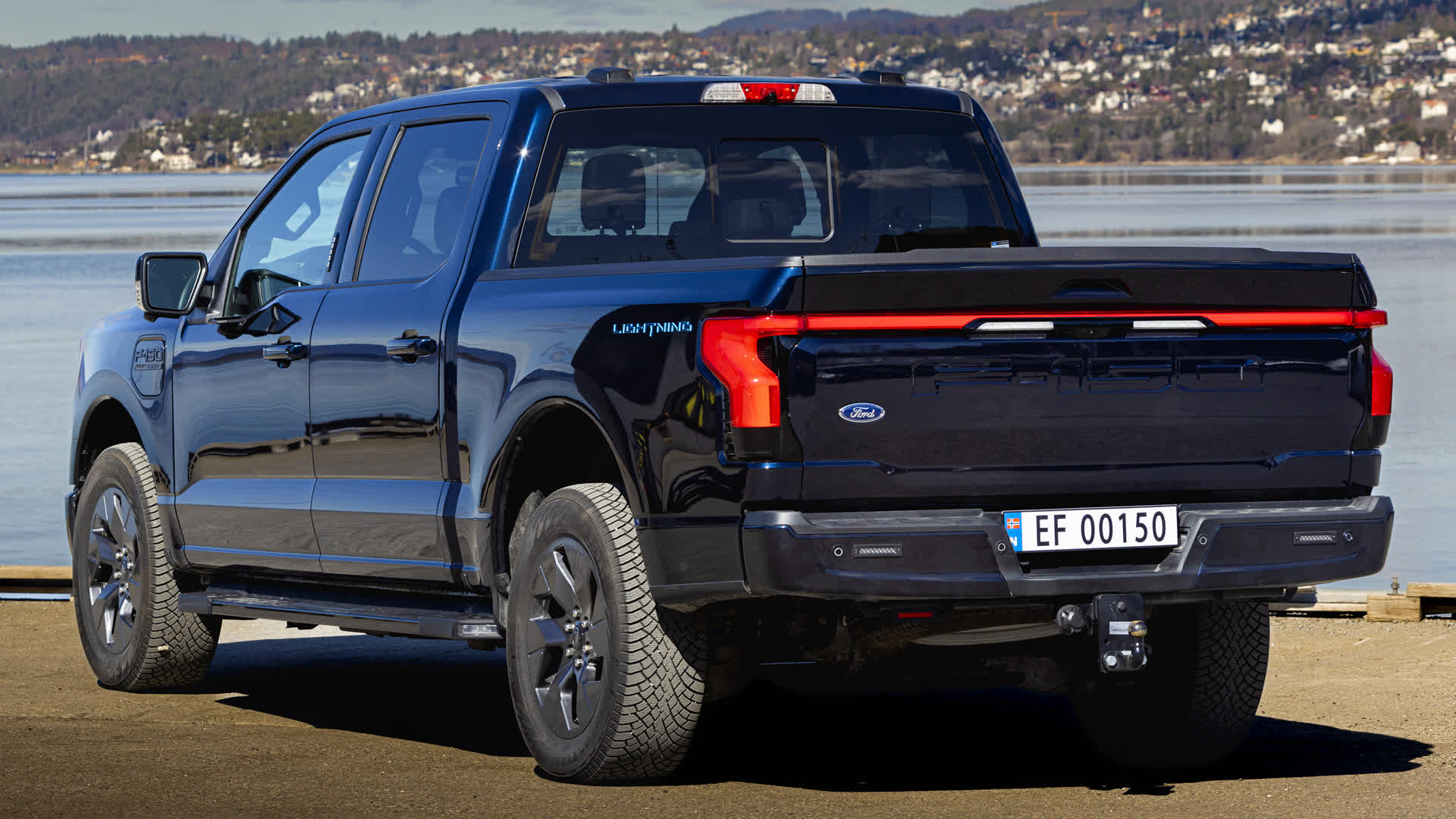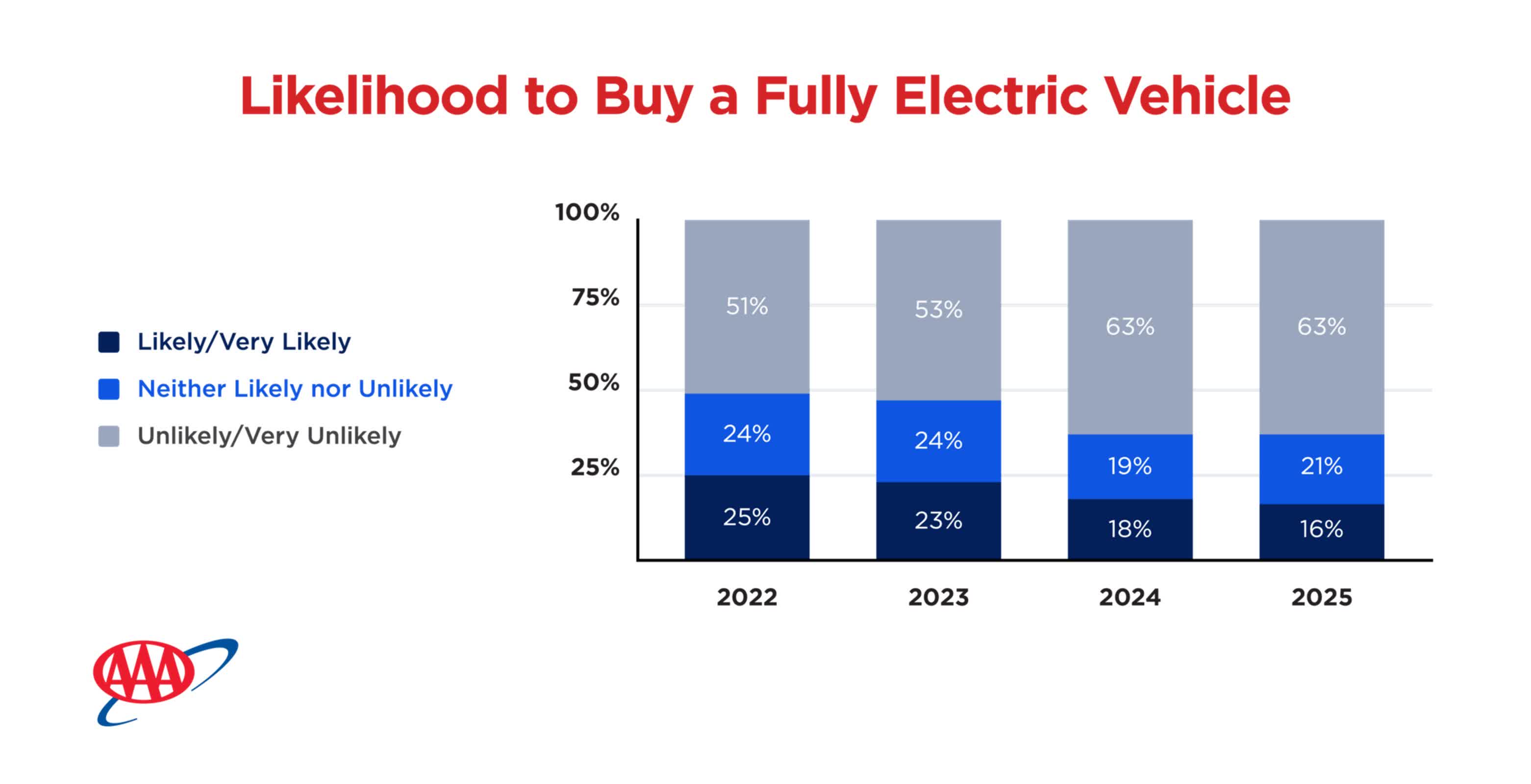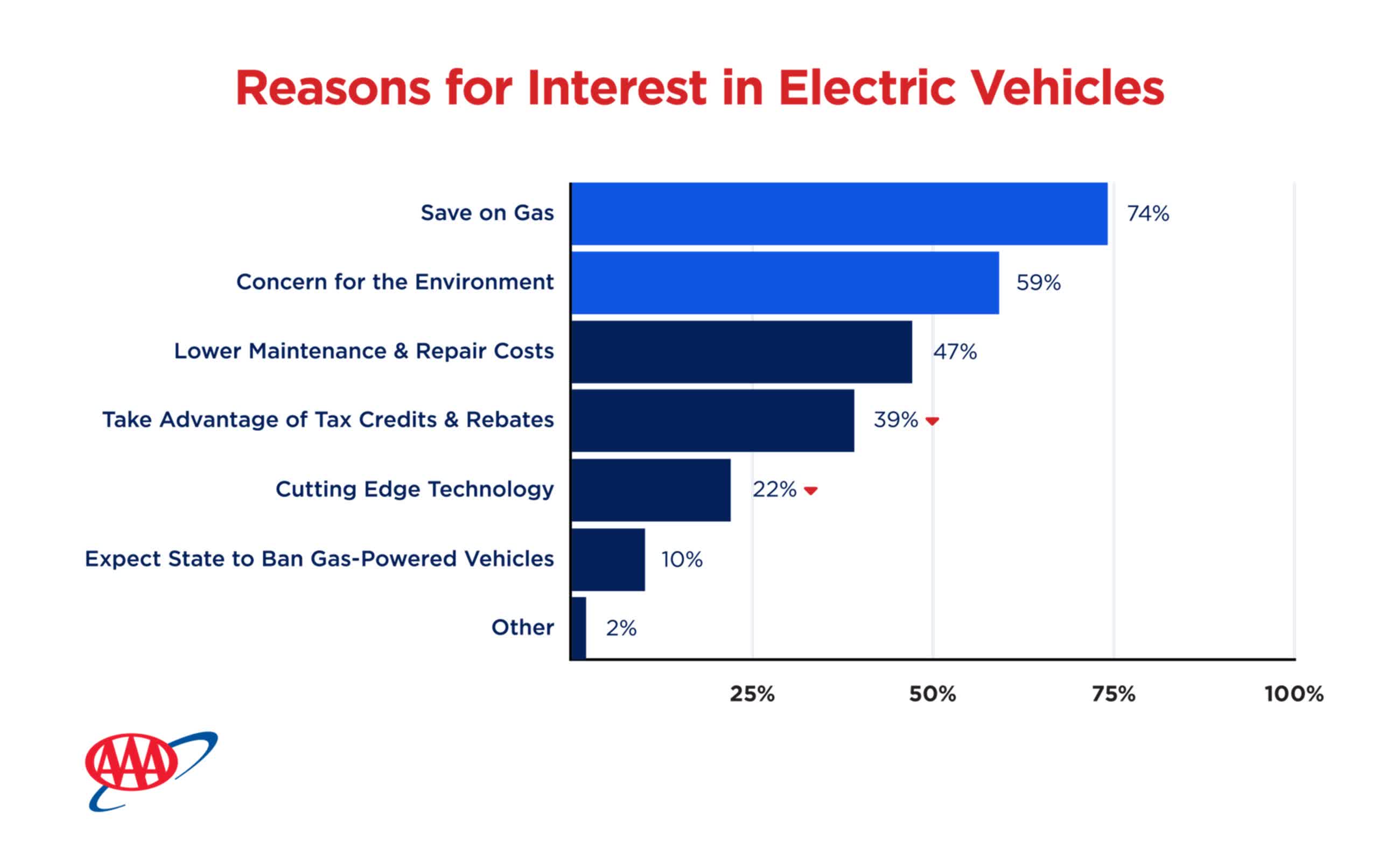Recap: Americans' enthusiasm for electric vehicles appears to be cooling, even as automakers offer more choices than ever before. Over the past four years, more than 75 new fully electric models have been introduced in the United States, giving consumers an unprecedented range of options. Yet recent research suggests that this expanded selection has not translated into increased interest among buyers.

A new study from AAA, conducted in March and based on interviews with more than 1,100 adults, found that just 16 percent of Americans say they are "very likely" or "likely" to choose an electric vehicle for their next car. This is the lowest level of interest recorded since before the pandemic. At the same time, the proportion of people who are "unlikely" or "very unlikely" to consider an EV has climbed to 63 percent, up from 51 percent four years ago.
The study points to several persistent concerns that are shaping consumer attitudes. High battery repair costs were cited by 62 percent of those not considering an EV, while 59 percent pointed to the higher purchase price compared to gasoline vehicles.
Many respondents also expressed doubts about the practicality of EVs for long-distance travel, with 57 percent saying they do not believe electric cars are suitable for long trips.
Charging infrastructure remains another sticking point; 56 percent of participants said the lack of convenient public charging stations is a major issue, and 55 percent worry about being stranded with a depleted battery. Additionally, more than a quarter of respondents reported challenges with installing home charging equipment.
"Since we began tracking interest in fully electric vehicles, we've seen some variability," said Greg Brannon, director of automotive engineering for AAA. "While the automotive industry is committed to long-term electrification and providing a diverse range of models, underlying consumer hesitation remains."
The survey also reveals a shift in expectations about the future of the EV market. In 2022, 40 percent of Americans believed that electric vehicles would surpass gasoline-powered cars within a decade. Today, that number has dropped to just 23 percent, reflecting a growing skepticism about the pace of change.
Financial factors continue to play a complex role in consumer decisions. While the high upfront cost of EVs is a deterrent for many, the appeal of lower fuel and maintenance expenses still resonates with some buyers. Last year, AAA found that EVs had the lowest fuel and maintenance costs of any vehicle type, though they also had the second-highest total ownership costs due to depreciation and financing.
Interest in government incentives has also waned. The share of likely EV buyers motivated by tax credits and rebates has fallen from 60 percent last year to 39 percent this year, and some respondents expressed concern that these incentives might be reduced or eliminated in the future.
Other research offers a slightly different perspective. J.D. Power's latest study, which focuses on people planning to buy or lease a new vehicle in the next year, found that 24 percent are "very likely" to consider an EV, and another 35 percent are "somewhat likely."
However, charging infrastructure remains a significant concern for more than half of these shoppers, and a substantial number still cite high purchase prices as a barrier.
Despite the growing number of electric models on the market, the data suggest that many Americans remain unconvinced that EVs are the right choice for them. As the industry continues to invest in electrification, it faces the challenge of addressing consumer doubts about cost, convenience, and practicality. For now, the road to widespread EV adoption appears to be a longer journey than once anticipated.
Enthusiasm for electric vehicles wanes among US buyers, despite new choices

